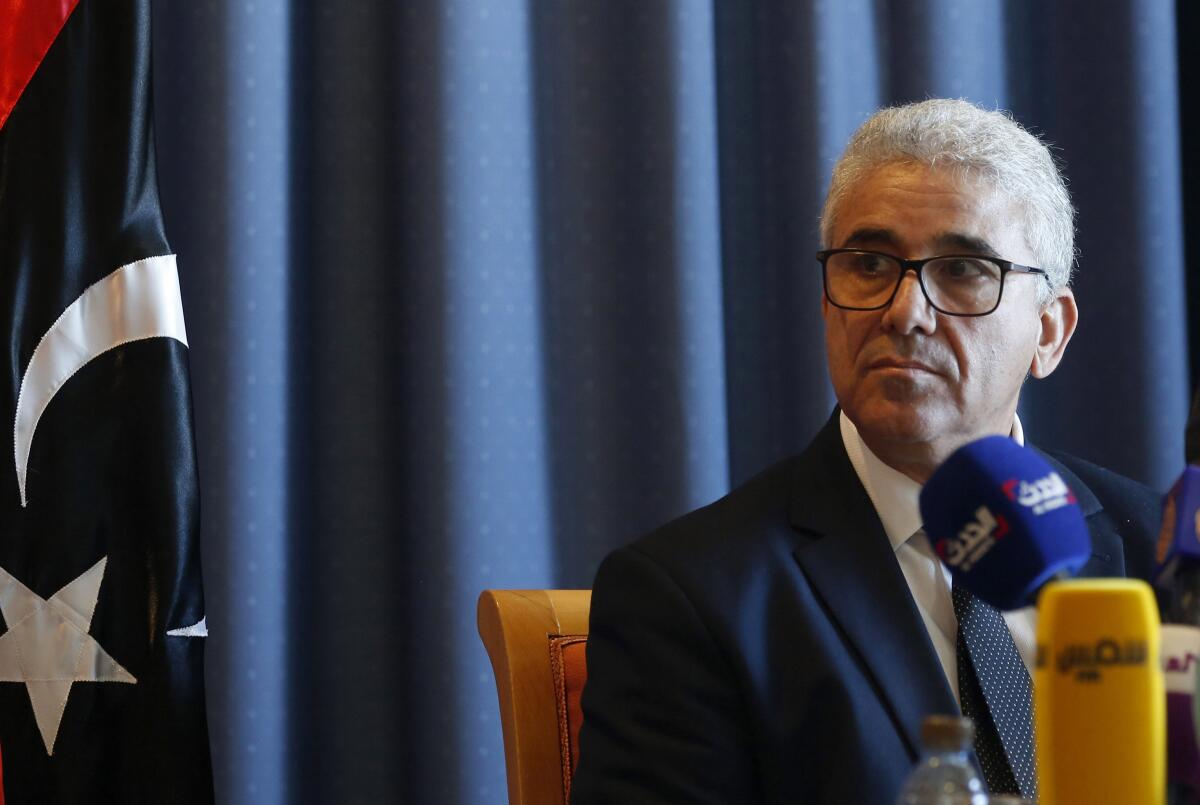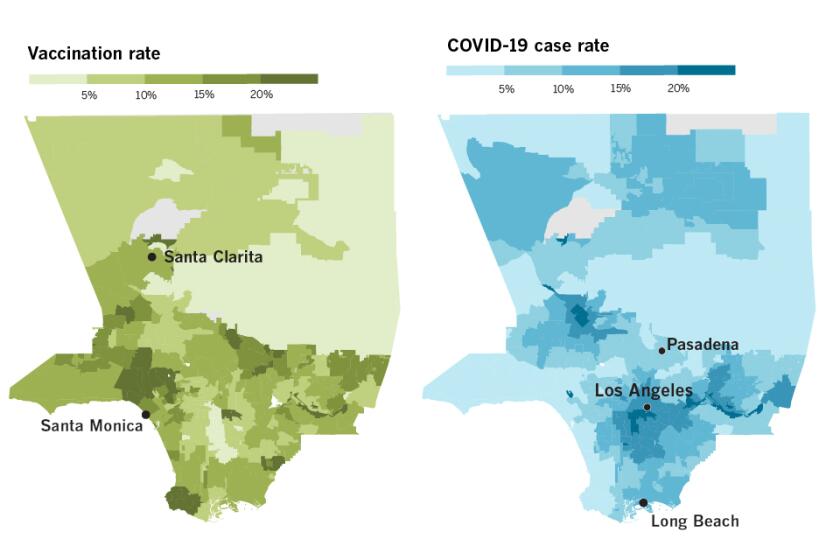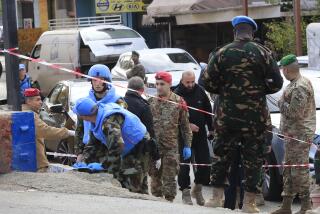Libyan interior minister survives attack on motorcade

CAIRO — The motorcade of the interior minister of Libya’s United Nations-backed government came under attack Sunday in the capital, Tripoli, officials said.
Armed men opened fire at Fathi Bashagha’s motorcade on a highway in Tripoli, wounding at least one of his guards, said Amin Hashmi, a spokesman for the Tripoli-based Health Ministry.
He said the minister survived the attack and his guards chased the assailants, killing one and detaining two others.
The Interior Ministry said in a statement that Bashagha was returning to his residence in the Janzour neighborhood when armed men in an armored vehicle opened fire on his convoy.
The statement called the attack an “attempted assassination” of the minister.
Disparities are revealed in detailed data tracking the progress of the COVID-19 vaccination effort in more than 340 neighborhoods across L.A. County.
Earlier Sunday, Bashagha met with Mustafa Sanalla, head of Libya’s National Oil Corp. to discuss the security of oil facilities and how to strengthen the corporation’s independence to “ensure a fair distribution of wealth among all Libyans.” He called their meeting “fruitful.”
No group claimed responsibility for the attack, which underscores the insecurity in the North African county.
The U.S. Ambassador in Libya Richard Norland condemned the attack and called for an investigation to hold those responsible accountable.
“Minister Bashagha’s focus on ending the influence of rogue militias has our full support,” Norland said.
Oil-rich Libya was plunged into chaos after a 2011 NATO-backed uprising toppled and killed longtime dictator Moammar Kadafi. The country has been divided between two governments, one in the east and another in the west, each backed by a vast array of militias as well as foreign powers.
Earlier this month, a U.N.-picked body comprised of Libyans from both sides appointed an interim government — a three-member Presidential Council and a prime minister — to lead the country through elections, scheduled for Dec. 24.
Bashagha was a contender for the post of prime minister; in the end Abdul Hamid Mohammed Dbeibah was chosen to lead the transitional Cabinet.
The forum also picked Mohammad Younes Menfi, a Libyan diplomat from the country’s east, to lead the Presidential Council.
More to Read
Sign up for Essential California
The most important California stories and recommendations in your inbox every morning.
You may occasionally receive promotional content from the Los Angeles Times.











